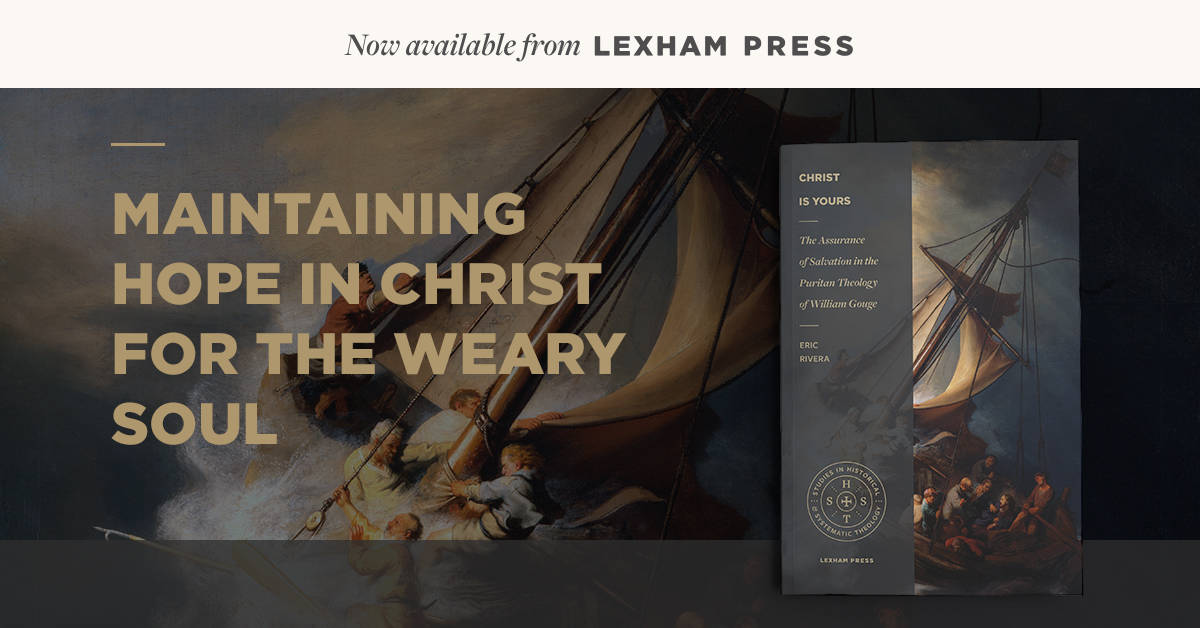
For William Gouge and other Puritans, practical divinity encouraged rigorous reflection, introspection, and a disciplined life in order to help believers discern even the tiniest degree of faith that testifies that they are elect, thereby bringing consolation to the anxious soul.
They were concerned that if one overemphasized justification and assurance at the neglect of a sanctified life, then moral standards would be lost. On the opposite side, they were equally concerned that if assurance was found in sanctification, the grace of God displayed at the cross of Christ might be neglected. Thus, they sought to navigate a middle ground that emphasized Christ?s finished work on the cross for the believer and a Christian life that bears fruit.
Gouge?s practical divinity was born out of his understanding of the Bible, theology of atonement, and belief in God?s providence and moved him to guide specifically Christians who struggled in their faith and doubted the reality of their salvation because of personal sin, physical ailments, and cultural circumstances.
Interspersed throughout Gouge?s exposition on the atonement is the reminder that regular reflection on Jesus? atoning work should elicit various responses from the Christian. Because Christ voluntarily offered himself as our substitute, ?this should move us to labour after holiness.? The magnitude of Christ?s sacrifice should compel the believer to walk in holiness, to live a pure life. Gouge is espousing the purifying effect of meditation on sound theology. In addition, the example of Christ in his suffering leaves for the Christian a model to be imitated when in the midst of his own trials. In his suffering, Jesus proves to be the ultimate guide to follow. For all, suffering ultimately leads to death. Jesus set the captives free in order to give them a hope that transcends this life. He conquered death. Therefore, the Christian can take comfort with hope in the face of death and declare, ?Death, where is your victory??
The gospel further drives Gouge?s practical divinity in this way. God?s justice is met by God?s grace. When the Christian is ?ravished? by this truth displayed at the cross he is driven to praise God and devote all of his life to follow him. Again, Gouge makes it unmistakably clear that the theological truths of God?s Word are matters to be meditated upon and applied to one?s life resulting in praise and adoration of God.
Jesus offered himself as a substitutionary sacrifice for humanity, which satisfied God?s infinite justice and pacified his burning wrath toward sin. Jesus, by his atoning death on the cross, removed the wretched curse of the Law that was necessarily upon humanity and vanquished the devil and death through death resulting in the freeing of those who believe who were once held captive by sin, the Law, and Satan. These theological riches that sanctify the believer are to be found in the meditation upon Scripture and prayer.
A priority of Puritan practical divinity reflected in Gouge?s atonement teaching is that Christians lead holy lives. Gouge calls his readers to return to the Scriptures and return to prayer that they might be sanctified by the same. ?That we may receive grace from Christ, we must be well informed in the means which he hath sanctified to sanctify us,? writes Gouge. He continues, ?These are his holy ordinances: in special, his word, and prayer, 1 Tim 5.? The Scriptures not only elicit praise from the lips of God?s people, but they also have a purifying effect upon them. Then, as one sees himself growing in holiness and finds ?any sanctifying grace wrought in us, we ought, with thankfulness ? to acknowledge from whence it cometh; and withal, we ought to use what we receive to the glory of him that hath sanctified us.?
Even in his gospel and atonement theology, Gouge presents the finished work of Christ that brings about salvation through saving faith as a motivation for a more dedicated Christian life. His practical teaching in his pastoral theology does not present the Christian life as something to be faithfully lived in order to merit God?s favor or to make man?s effort the primary ground for assurance, but rather believers live for God as a grateful response to his favor directed toward them. Furthermore, good works are not the basis for salvation nor are they the way in which the atoning work of Jesus is applied to believers. Rather, Christians express their gratitude to God for his gracious and unmerited atoning work on their behalf by performing sanctifying works.
Gouge?s gospel understanding and atonement articulation come from an exegetical and theological framework. In a variety of places, Gouge and John Owen share striking similarities in their expositional approach to a text or phrase as well as in their conclusions. Neither Puritan was dependent on the other, and yet, with like-minded biblical conviction, the two present a multi-faceted theology of the atonement. What is evident in Gouge in particular, is that sound theological belief must never be distant from the affective response in the heart and change in life. Gouge teaches that pure theology is purifying theology, which elicits praise from the lips of God?s people. Such is the case with the gospel and the atoning work of Jesus Christ on the cross, where grace and justice kiss resulting in the salvation of those who believe.
* * *
This excerpt was adapted from chapter 2 of Christ Is Yours: The Assurance of Salvation in the Puritan Theology of William Gouge?by Eric Rivera (Lexham Press, 2019).






